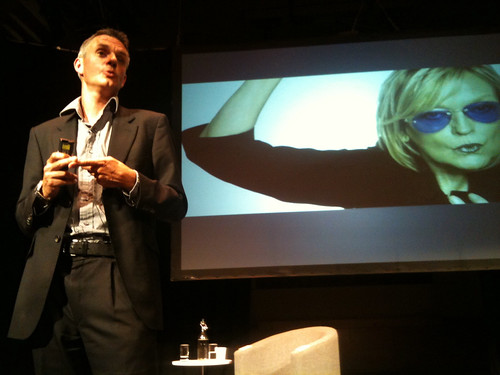Liz Kershaw: Annie Nightingale was my hero, my mentor and my protector
Annie Nightingale #AnnieNightingale

When I was a teenager, Annie Nightingale was the sound of Sunday afternoons. The weekend was nearly over, and with panic setting in to get my homework done, it was time to bunker down in my bedroom with my books and my little red radio. Just mention her name and the memories come flooding back of denim flares, David Cassidy posters, and LP stacks by the old Dansette. And your BFF on Radio 1 blasting out some song that you would never hear on any other show.
Annie Nightingale wasn’t like most of the big stars she shared studios with. For a start she seemed to actually love discovering new music for herself and then sharing that, and the bands she talked about, with warmth and a sense of fun. She was a fellow fan.
And, of course, she was a pioneer. Because she was not… a bloke!
In fact she was the only “not-a-bloke” for the first 15 years of “The Nation’s Favourite”. Radio 1 was set up in 1967 by a bunch of chaps – posh, mainly, and many ex-military – who’d been charged with torpedoing the increasing popularity of those ‘ghastly’ Pirates (so-called because these stations on ships, such as Radio Caroline, had popped up playing pop music floating just far enough off the east coast to escape the long arm of the law).
The same BBC bosses still seemed to be in charge when I rocked up at Broadcasting House 20 years later. They’d steer clear of us jocks but occasionally, in the style of Young Mr Grace in Are You Being Served?, would invite us into the oak-panelled Governors’ dining room, slip us a small sherry and confide: “We don’t really understand what you’re doing but it seems to be jolly popular so do carry on.”
‘The real rock’n’roll deal’: Annie Nightingale at her home – Hulton Archive
Their formula for a launch line-up had been all male. Naturally. “Most of our listeners are ladies. Housewives, mothers, that kind of thing. At home all day. They want male company. They don’t want to listen to other women” was the received wisdom.
So it took them three years to find a female to let loose on their listeners. Enter Annie in 1970.Then, in 1982, they discovered Janice Long on BBC Radio Merseyside. I was signed up in 1987 – only the third girl.
Annie Nightingale was my hero, role model and, now I’d been recruited and we were introduced, my colleague, mentor and something of a protector. At one Radio 1 DJs Christmas dinner there were just two of us in party frocks. All the other DJs were in DJs. She took me to one side. “Look who they’ve put you next to at the table. Quick. Go and move the place cards. You don’t want to be bullied by him all night.”
Before Annie was let into the elite male group she was a columnist for Petticoat, a teen magazine mums didn’t approve of. I loved reading what Annie wrote. And even more what she wore. Huge, multi-coloured platform boots. Mini-skirts, hot pants and fun fur jackets. The kind of “fab-gear” clobber you’d get in Carnaby Street but could only dream of in my hometown of Rochdale. This blonde with her sparkly eye-shadow was certainly living the life in “that London”. Mmm…maybe one day eh?
Having got me through my A Levels, my idol and my radio came to university with me. We all listened in our student flat. As did everyone else at Leeds, it seemed. Her mentions of Leeds students were a running joke of hers on every show.
And I carried on that tradition. Forty years later, 6 Music listeners in Leeds told me they played a drinking game during my show and every time I mentioned the city they’d take a shot.
‘Living the life’: Annie Nightingale in her Radio 1 studio – Redferns
I always knew she was the real rock ‘n’ roll deal. And no more so then when Island records, awash with cash in those late 80s days, took us both to Amsterdam to see U2. We found they’d booked us a twin room and when I investigated the mini-bar she was appalled. “Oh we don’t bother with those tiny bottles,” she told me and produced a huge bottle of vodka from her handbag. We had a riot of a time and ended up taking on Bono and the boys at pool. Nobody messed with Annie.
Those BBC bosses tried to. In 1977 they decided that the Ian Dury and The Blockheads song Sex and Drugs and Rock and Roll was too racy for Radio 1. So they banned it. Annie just flipped it over and played the B side – the equally racy Razzle In My Pocket!
There are still loads of songs that immediately make me think of her and those times as soon as I hear the first bar. A favourite is Kevin Ayers’s Stranger In Blue Suede Shoes. Never heard of it? No, it never troubled the charts at the time. I only know it because of Annie Nightingale.
The song ends with:
“Yes, I’m getting the hell out of here
Yes, I am – bye, bye.
That’s the end of the message
Thank you very much.
Bye bye”
Thank YOU very much Annie. Bye bye.
Broaden your horizons with award-winning British journalism. Try The Telegraph free for 1 month, then enjoy 1 year for just $9 with our US-exclusive offer.